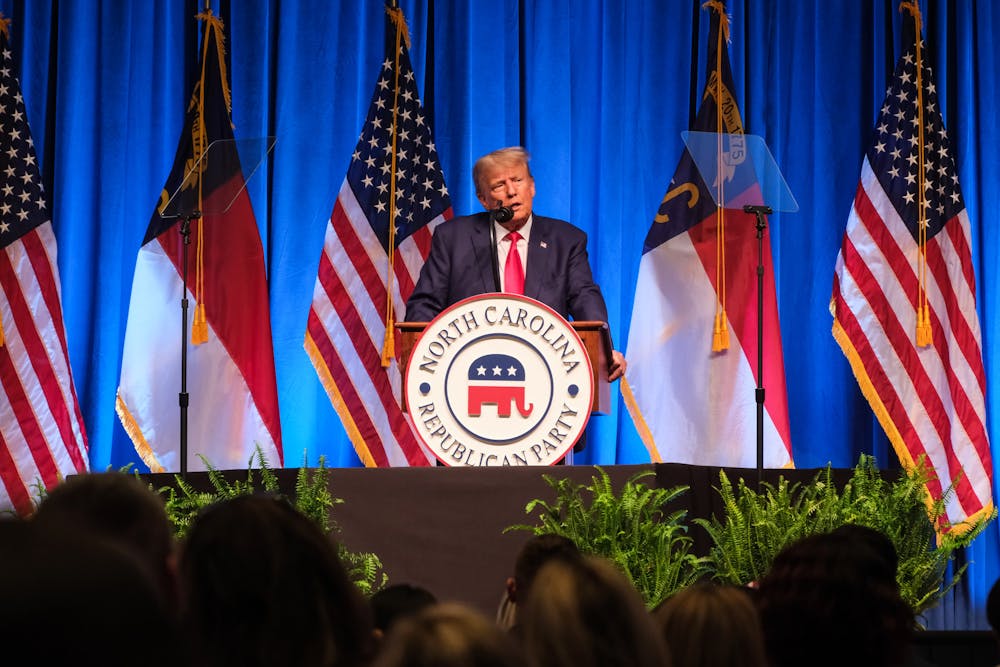
1968 Wharton graduate and former President Donald Trump was indicted Tuesday on charges related to his efforts to overturn the results of the 2020 election.
The indictment charges Trump with three criminal conspiracies in connection to his false claims about election fraud and attempts to discount legitimate votes. Trump will make an initial court appearance on Thursday afternoon, with a trial date yet to be set.
The indictment comes after a months-long investigation, led by special counsel Jack Smith, into Trump’s use of government power to remain in office after the 2020 presidential election. The document states that Trump perpetuated conspiracies to defraud the United States, obstruct vote certification proceedings, and disenfranchise voters.
“Each of these conspiracies — which built on the widespread mistrust the Defendant was creating through pervasive and destabilizing lies about election fraud — targeted a bedrock function of the United States federal government: the nation's process of collecting, counting, and certifying the results of the presidential election,” the indictment said.
In a statement on Tuesday, Smith said that Jan. 6 attack on the U.S. Capitol was “an unprecedented assault on the seat of American democracy” that was “fueled by lies.”
He added that the Department of Justice was committed to holding those criminally responsible for the attack accountable and seeking a speedy trial. Trump’s trial will take place in the United States District Court for the District of Columbia.
Federal judge Tanya Chutkan, who graduated from the University of Pennsylvania Carey Law School in 1987, will oversee the proceedings. During her time at Penn, Chutkan was an editor of the Penn Law Review and a legal writing fellow. She worked in private practice and litigation after graduation and was appointed to the federal district court in 2014.
In 2021, Chutkhan decided a case on Trump’s right to maintain the secrecy of materials related to his actions leading up to the Jan. 6 attack on the U.S. Capitol. She ruled that executive privilege did not shield the papers from congressional oversight.
“Presidents are not kings, and the Plaintiff is not the President,” she wrote in the ruling.
Trump was separately indicted in June on charges related to classified documents found at his Mar-a-Lago estate in Palm Beach, Fla. The investigation, also led by Smith, charged Trump with violating national security laws and participating in a conspiracy to obstruct justice.
A superseding indictment, unveiled on July 27, brought new accusations that Trump attempted to destroy and conceal evidence related to the investigation.
The Daily Pennsylvanian is an independent, student-run newspaper. Please consider making a donation to support the coverage that shapes the University. Your generosity ensures a future of strong journalism at Penn.
Donate







